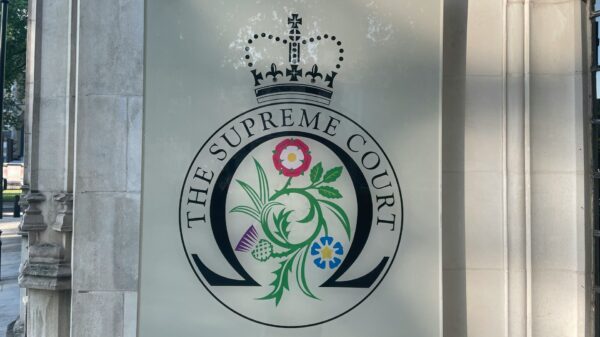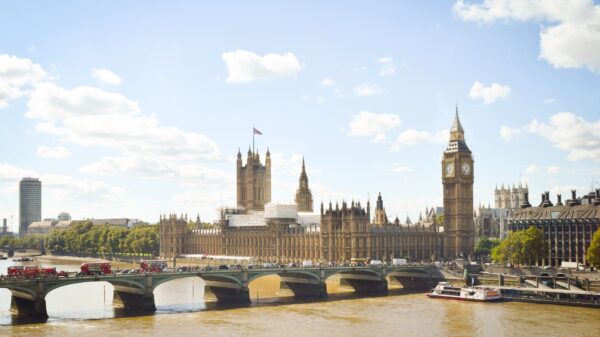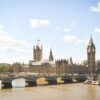Staff writer Rayhan Hussain examines Rishi Sunak’s performance at the COVID Inquiry as he viewed it unfold from the public gallery.
The time is 8:45 – it’s a cold Monday morning. A group of us gather on a leafy street in Paddington, West London; a flock of cameras, photographers and news channels are stationed ready. The Prime Minister, Rishi Sunak, arrives to be the target of a six-hour interrogation by senior lawyers. The subject of such an intense grilling: the handling of COVID-19. He was, of course, the Chancellor of the Exchequer at the time of the pandemic. The second most powerful man in government, and the occupant of No.11 Downing Street, in charge of steering the British economy through its most turbulent period since the global financial crisis.
The current module of the inquiry is examining the ‘Core UK Decision-making and Political Governance‘. Mr Sunak is one of the last senior figures to appear in front of the inquiry, with Boris Johnson, the then Prime Minister and a man Sunak claimed to have seen more than his own wife during the crisis, giving his own explanations last week. A slew of other key figures, such as Matt Hancock, the former Health Secretary, and Dominic Cummings, Johnson’s former chief adviser, have also given their testimonies.
In the queue for the public gallery I was alongside some incredibly brave and courageous individuals. Members of the COVID-19 Bereaved Families for Justice, an organisation of those who lost loved ones during the pandemic, made up the bulk of those wanting a seat in the hearing room – they were here looking for answers. More poignantly, each person held frames of their lost loved ones to demonstrate the gravity of this moment for them, showing the real life consequences of the pandemic and how it was handled.
As Sunak emerged from his convoy of security vehicles, he was met with aggrieved chants of “Lives are more important than money, Sunak!” The anger of these bereaved families felt entirely justified in the moment.
The pandemic was a storm of hurt for so many who lost so much. With accusations directed at the former Chancellor for being one of the relatively small number of individuals in government who lobbied for less restrictions, the pain had not been forgiven. Remember too, prior to his evidence session, it was revealed the Prime Minister had been described as “Dr Death the Chancellor” by the government’s chief scientific advisor, Dame Angela McLean, in a WhatsApp message to a colleague, referencing the ‘Eat Out to Help Out’ scheme.
Where are Sunak’s own WhatsApp’s?
Sunak began his evidence with an apology to “all those who lost loved ones.” Boris Johnson began his testimony in a similar apologetic light last week. When quizzed about his failure to provide the inquiry with his WhatsApp messages, which date back from the start of the pandemic to May 2021, the line of questioning left Sunak to prevaricate in a similar vain to Johnson just a week earlier. He noted that he was not a “prolific” user of the messaging service and, because he had changed his phone several times, had failed to back up his messages.
Interesting, perhaps that the Cabinet Office was embroiled in a legal battle over the summer regarding its reticence to provide messages from that historic period. Many observers, including Labour, suggested claims of a cover-up. Whilst Dominic Cummings and other senior advisers wilfully provided their communications, Sunak’s and Johnson’s failed to come to light.
That Interview with The Spectator
During the Tory leadership contest in the summer of 2022, Sunak gave an interview to The Spectator magazine where he candidly spoke of his concerns regarding the lockdowns and their wider consequences. It was clear from this interview that he was one of the few dissenting voices in government and wanted to be knows as such. During it, he refers to conversations with Johnson where he vented his frustrations over a lack of cost-benefit calculation behind each intervention. This was picked up almost immediately by Hugo Keith KC, the chief inquisitor tasked with interrogating the inquiry’s witnesses.
Surprisingly, Sunak seemed to distance himself from many of the claims he made in that Spectator interview. Whilst he admitted that as Chancellor, he took every opportunity to bring to the attention of the Prime Minister the consequences of the lockdown and the potential fiscal and economic harm, he refused to be drawn into the specifics.
Realistically, the Prime Minister knows that he is now at the helm of a 13-year Conservative government which was responsible for the decisions made during the pandemic. Whilst he may have been able to speak his mind more fluidly during the Tory leadership contest, he has become rather more limited and viewed as complicit in those choices.
Justification for Eat Out to Help Out
The most contentious line of questioning by Hugo Keith KC was the flagship policy to get diners back into restaurants as part of the Eat Out to Help Out scheme. The scheme was a measure introduced by Sunak in August 2020 to incentivise the public to return to restaurants for half-price meals, with the government taking up the other half of the tab. It was designed to boost the economy at a time when the hospitality sector was facing massive job losses and risks of closure. The following month, a second wave of COVID-19 cases subsequently emerged in the UK as schools and universities returned in September 2020.
One woman in her 50s, who did not wish to be named, made the journey from South Wales to hear Sunak’s evidence in-person. She lost her husband to the disease in December 2020. She told me it was her firm belief that “Eat Out to Help Out lost me my husband. These people [the government] weren’t looking out for us.” It should be said that Sunak viewed focussing on the government’s financials as his “constitutional responsibility” and this provides an explanation for him prioritising economic growth over public health concerns in regards to ‘Eat out to Help Out’. Sunak was unaware of descriptions of the Treasury as the ‘Pro Death Squad’ and suggested it was an “unfair characterisation of HMT” given how incredibly hard they were working to save people’s livelihoods and stop the economy from collapsing. Clearly knotty decisions that would have had major ramifications either way.
Despite concerns at the time by Professor Chris Whitty and Sir Patrick Vallance that the policy would lead to a surge in COVID cases, Sunak remains adamant that nobody from the scientific community raised any questions at the time. Prior to its announcement, Sunak explains that his refusal to discuss the scheme with health advisers was because it was a “fiscal issue” that was “market sensitive.” This is laughable and as acknowledged by the KC, it was merely a scheme which encouraged people to eat in restaurants. It was not a policy which had taxable implications.
It is basic common sense that more people mixing indoors would have increased the prevalence of the disease. But it is also true to say that the scheme operated within the context of the lifting of restrictions at the time. How the inquiry judges this policy within the bigger picture remains to be seen. Yet it is likely to damage Sunak’s reputation as the man who, by trying to fan the flames of the economic crisis, sparked the fires of a public health one.
Dysfunction in Downing Street?
Rishi Sunak denied claims of “dysfunction” in Downing Street and the Cabinet Office during the pandemic’s key decision-making moments. This was despite him living next door in No.11 and runs contrary to claims from former advisers of Johnson that there was a toxic culture at the heart of government.
The Prime Minister also denied that Boris Johnson had a tendency to ‘flip flop’ on COVID policy, telling the inquiry that policy only changed as the scientific advice changed. Yet, it is undeniable that most decisions made by the government were political calculations. The old adage that ‘advisers advise and ministers decide’ is one that could be applied here. Or perhaps, whilst the scientific advisers gave their point of view, it was the political advisers who had much more influence in swaying the politicians’ inevitable decisions.
Overall, it felt that Sunak avoided playing the blame game when it came to his former colleagues. Compared to Dominic Cummings, who was more than happy to detail his acrimonious relationship with Johnson and accuse Hancock of “flat out lying”, Sunak was certainly trying to play it safe. The delicate diplomacy needed to hold together the factional Tory base that we have become so used to is perhaps also another factor in Sunak’s unwillingness to engage in tittle-tattle.
There was no colourful language, no sweary or testy exchanges. It perhaps reflects his inherently technocratic nature – and a man who likes to be seen as engaged with and on top of the detail instead of drama. His preference to distance himself from his former colleagues is also indicative of his own contemporary status as Prime Minister – as well as a perceived desire not to rock the boat before an election. Indeed, Sunak argued the fact that “debates raged” was not necessarily a bad thing. Rather, it would have been a far worse reflection of the government if debates did not take place on some of those enormously momentous decisions.
Difficult Decisions
The government at the time, with Boris Johnson at the helm, had to make difficult decisions against a backdrop of changing scientific advice and enormous public and political pressure. It was a genuine national emergency – and the decisions that needed to be taken were a matter of life and death. There were no right answers when it came to dealing with this new disease. But nobody can dispute that things can and should have been done differently – finding the specifics of this is the main objective of the inquiry. Through investigating the lessons that can be learned it will hopefully inform how events can be handled differently in a future crisis.
Another interesting observation that I made throughout the six hours was Sunak’s supposed inability to form a basic recollection of events – “can’t recall” and “I don’t remember” were a key recurrence of his answers. The Prime Minister’s increasingly frequent memory lapses were met with frustrated groans from the public gallery. And this is hugely concerning for the bereaved families, who came seeking clarity and transparency. Coupled with his missing WhatsApp’s, many watching this session may left feeling as though they didn’t have all the answers, instead they may just have had more questions.
Barring a one-hour break for lunch, I remained at the hearing centre for the entire day to listen to Sunak’s evidence session. He concluded as the sun started to set. Alongside me until the end were the bereaved families and it was a genuine honour to share this day with them. To hear their experiences and to try to understand as best I could their fears and concerns now that the emergency of the pandemic is (mercifully) in the rear-view mirror. But their stories do matter, and they cannot and must not be forgotten.


















